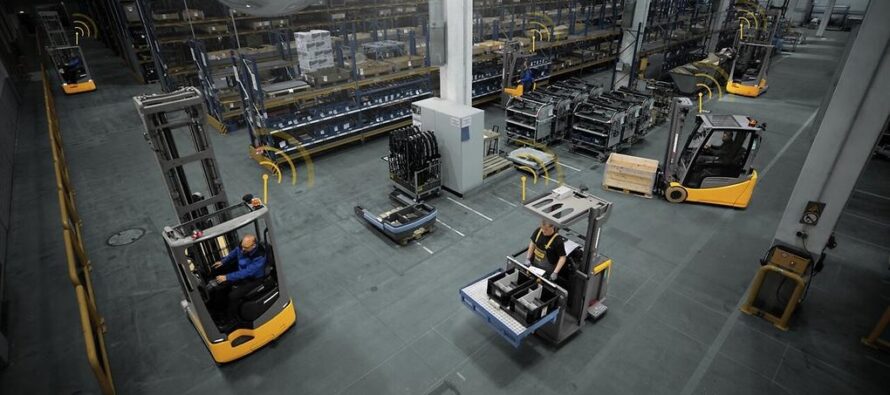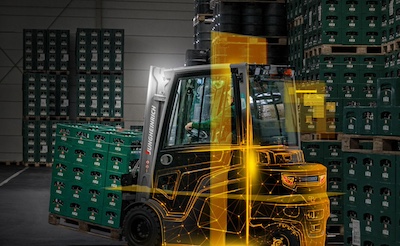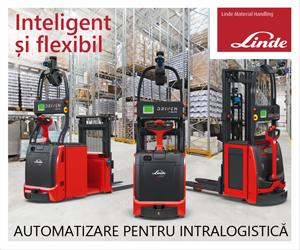Jungheinrich drives forward the digitalization and interconnection of intralogistics

Story Highlights
- Jungheinrich Romania
- stivuitoare Jungheinrich
- sistem de management al flotei FMS Jungheinrich
Related Articles
Jungheinrich is continuing to drive forward the digitalization and networking of intralogistics. To this end, the Group is equipping all newly ordered trucks produced in its European plants with telemetry units as standard. Jungheinrich trucks are thus fully networkable ex works and ready for intelligent integration in the warehouse. With the help of the Jungheinrich FMS fleet management system, customers can use this data to optimally deploy their fleet. Jungheinrich customers will now receive the Jungheinrich Fleet Management System Starter Kit free of charge with the purchase of a new truck.
The Starter Kit has five core functionalities: inventory management, location management, user management, operating hours and the Call4Service customer service. In inventory and location management, the fleet management system provides an overall view of the size and composition of the fleet on both a local and global level. The operating hours forecast helps to coordinate operations and enables the rapid identification of vehicles with particularly high or low utilisation.
 Using the Call4Service function, customers can conveniently contact Jungheinrich customer service at any time via the Jungheinrich FMS and obtain a comprehensive overview of open and completed service calls.
Using the Call4Service function, customers can conveniently contact Jungheinrich customer service at any time via the Jungheinrich FMS and obtain a comprehensive overview of open and completed service calls.
“Data is also one of the most valuable resources in the warehouse today. We are now making this data easily and efficiently usable by our customers,” says Christiane Pilz, Head of Main Segment Digital Products at Jungheinrich. “Connectivity is an essential key to further optimizing intralogistics. By processing information better and faster with our Jungheinrich FMS, we make our customers’ warehouses even more efficient.”
Thanks to the telemetry units, Jungheinrich customers receive real-time data on the condition and use of their trucks, with the help of the Jungheinrich FMS, to optimally manage their fleet. Data transmission to the Jungheinrich Cloud usually takes place via a mobile connection but can also be implemented through WiFi.
“If our customers agree to share the usage and vehicle data of their trucks with us, this also provides us with important insights into the actual use of the industrial trucks. This enables us to tailor our range of solutions even more flexibly, individually and attractively to our customers’ needs,” says Pilz. “This includes, for example, remote diagnostics for the targeted reduction or avoidance of downtimes through more efficient service or intelligent energy solutions as the basis for cost- and consumption-optimized energy management.”






